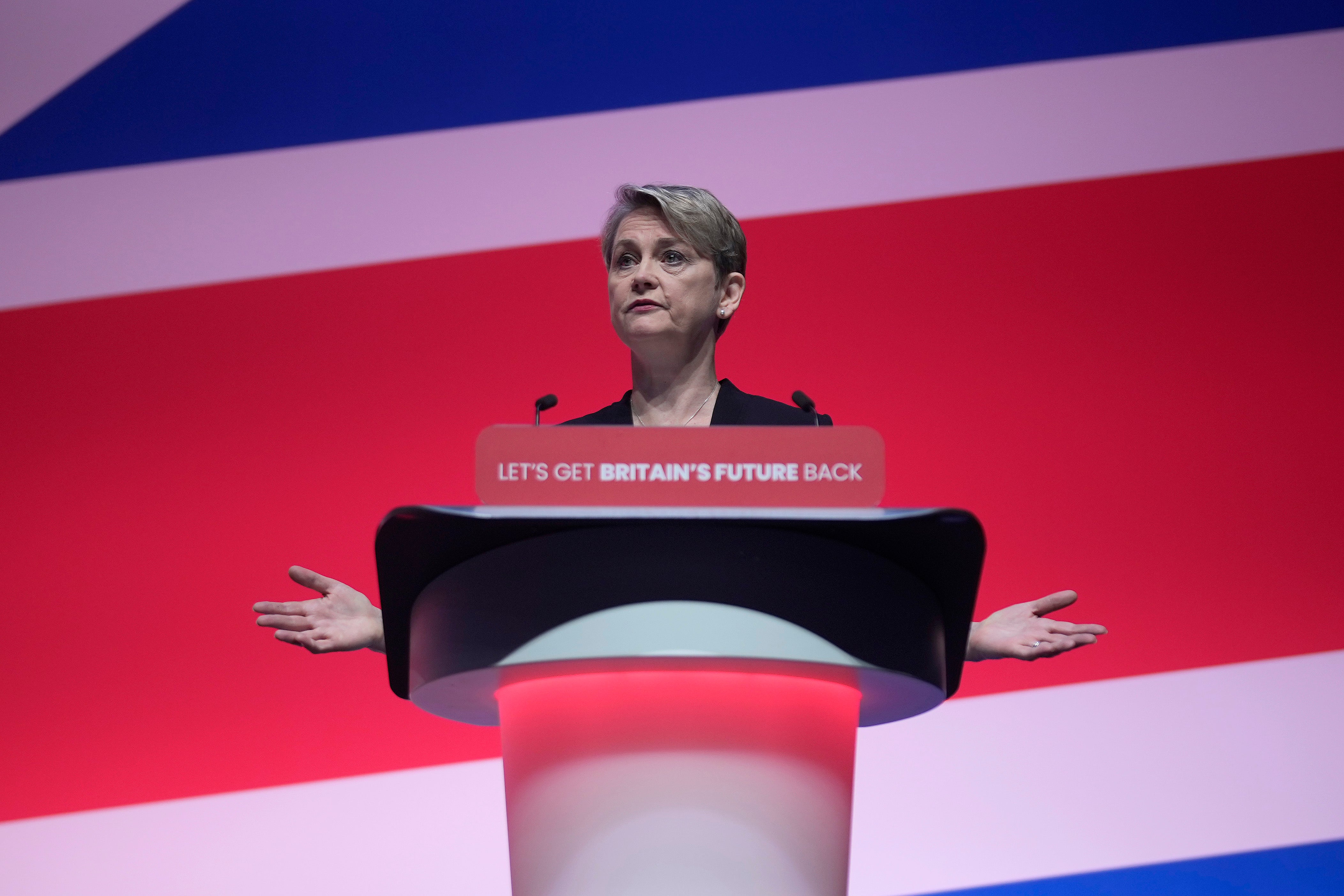Our criminal justice system is creaking – and it’s time politicians were honest about it
Editorial: Today’s revelations about police failure to protect vulnerable victims of domestic abuse follow Independent reports about overwhelmed courts and overcrowded prisons. How much more evidence does the government need before it takes action?

The Independent reports today that just over one per cent of victims who complained about domestic abuse were given emergency domestic violence protection orders, which require the alleged offender to leave the premises and not contact the victim. The shocking figure suggests that police are missing the chance to protect hundreds of thousands of victims. Only 10,489 orders were applied for in the year ending March 2022, despite more than 800,000 police reports.
Writing in this publication, Yvette Cooper, the shadow home secretary, pledges that a Labour government would force the police to consider the need for a protective order within 24 hours of an arrest or a police report. She is right to argue that the country “cannot put up with this failure” to tackle domestic abuse any longer. Labour’s pledge to halve violence against women and girls within a decade is welcome.
The Independent has highlighted wider problems in our creaking criminal justice system in a string of recent reports. They include the revelation that prisoners are waiting in jail for five years before coming to trial and that a record number of trials are being delayed at the last minute because of a shortage of judges.
The government has belatedly discovered that it cannot run criminal justice on the cheap. With jails bursting at the seams, Alex Chalk, the justice secretary, was forced to announce that prisoners would be released up to 18 days before their scheduled date.
This is a terrible admission for a party used to trumpeting its credentials on law and order. It exposes as hollow the tough rhetoric of ministers such as Suella Braverman, the home secretary. It won’t, of course, stop the Tories from trying to make crime a “dividing line” with Labour at next year’s general election. A Crime Bill will inevitably feature in the King’s Speech next month.
The Tories are excitedly drawing up plans to attack Sir Keir Starmer’s record as director of public prosecutions at the election. Yet the growing evidence of their own record on crime and justice – and on public services in general – suggests that such petty political point-scoring will not divert attention from their party’s woeful performance.
A report published today by the Institute for Government (IfG) think tank argues that the crisis in the justice system is even worse than painted by official figures: the crown court backlog of 64,709 in June is equivalent to 89,937 when complex cases requiring jury trials are taken into account.
The study warns that the UK’s “crumbling” public services are stuck in a “doom loop” and a perpetual state of crisis, unable to take the best decisions for the long term, and that staff are suffering burnout.
Although Rishi Sunak promises us “long-term decisions for a brighter future”, and Sir Keir Starmer an end to “sticking plaster solutions”, it is unclear how either main party would rescue vital services. In an indictment of 13 years of Tory rule, today’s study of nine key services warns that all of them, other than children’s social care, could be performing worse in 2027-28 than on the eve of the pandemic.
In most cases, services were worse in March 2020 than they were in 2010. This demolishes the excuse often cited by ministers – that Covid-19 is to blame. Instead, the IfG points to public pay restraint since the 2010s, which erupted into the sector’s worst strikes for decades, and underinvestment in capital projects for more than half a century, resulting in GP surgeries, hospitals, schools, courts and prisons that are not fit for purpose.
It seems that things can only get worse. The government’s eye-wateringly tight spending plans from April 2025 onwards, to which Labour is committed, pencil in annual real-terms increases of just 1 per cent. Given the Tories’ commitments on foreign aid, defence, and the NHS long-term workforce plan, other budgets will average minus 1.2 per cent per year in real terms, the report says.
Although the scope for further cuts is limited, reforms could deliver a much-needed boost to public sector productivity. As the IfG suggests, these could include multi-year budgets to avoid the need for emergency top-ups; a long-term building programme; a stable long-term policy agenda, with far less churn among ministers and officials; and a new relationship with staff, through improved pay negotiations, workforce planning, and working conditions.
The next government, no matter what its political hue, will probably have to raise taxes in order to deliver the services the country wants and needs, and to repair the permanent damage done by the years of austerity. Yet the Conservatives debate when, rather than whether, to cut taxes, and Labour insists it will not raise them if it wins the election.
A little more honesty from both main parties about the huge challenges facing public services – and fewer unrealistic promises – would be welcome. They might even get some credit for it.
Join our commenting forum
Join thought-provoking conversations, follow other Independent readers and see their replies
Comments
Bookmark popover
Removed from bookmarks